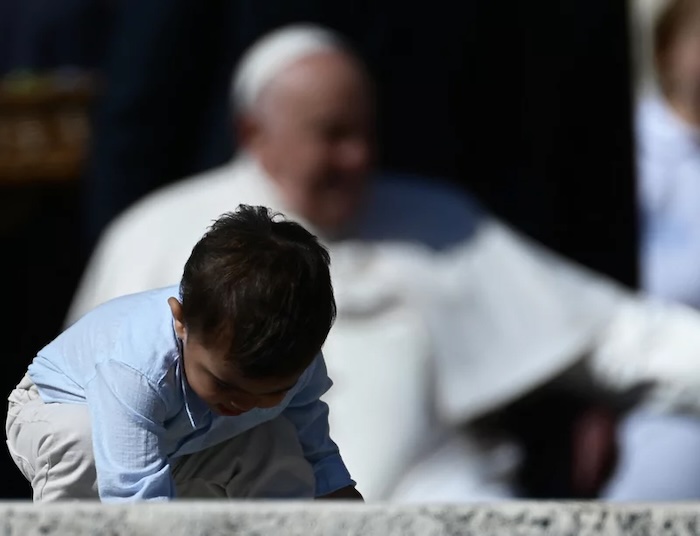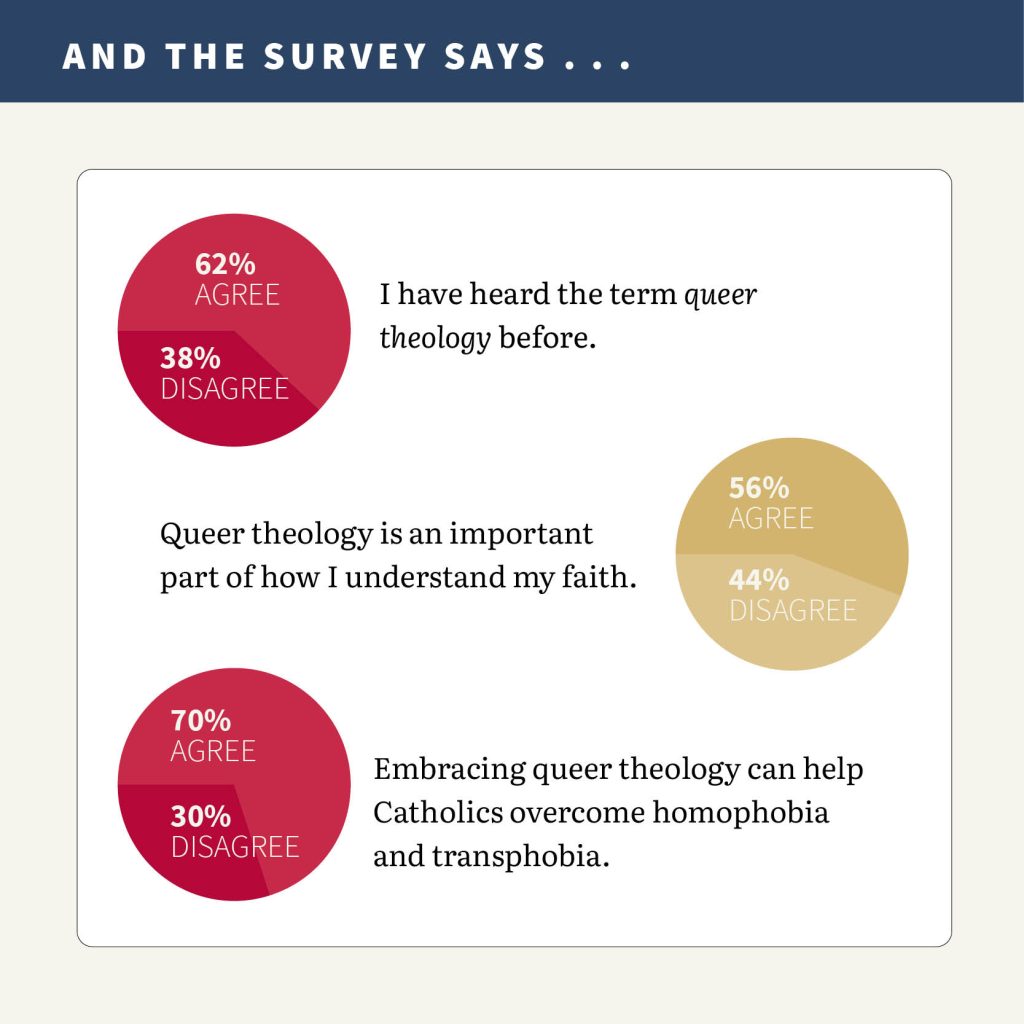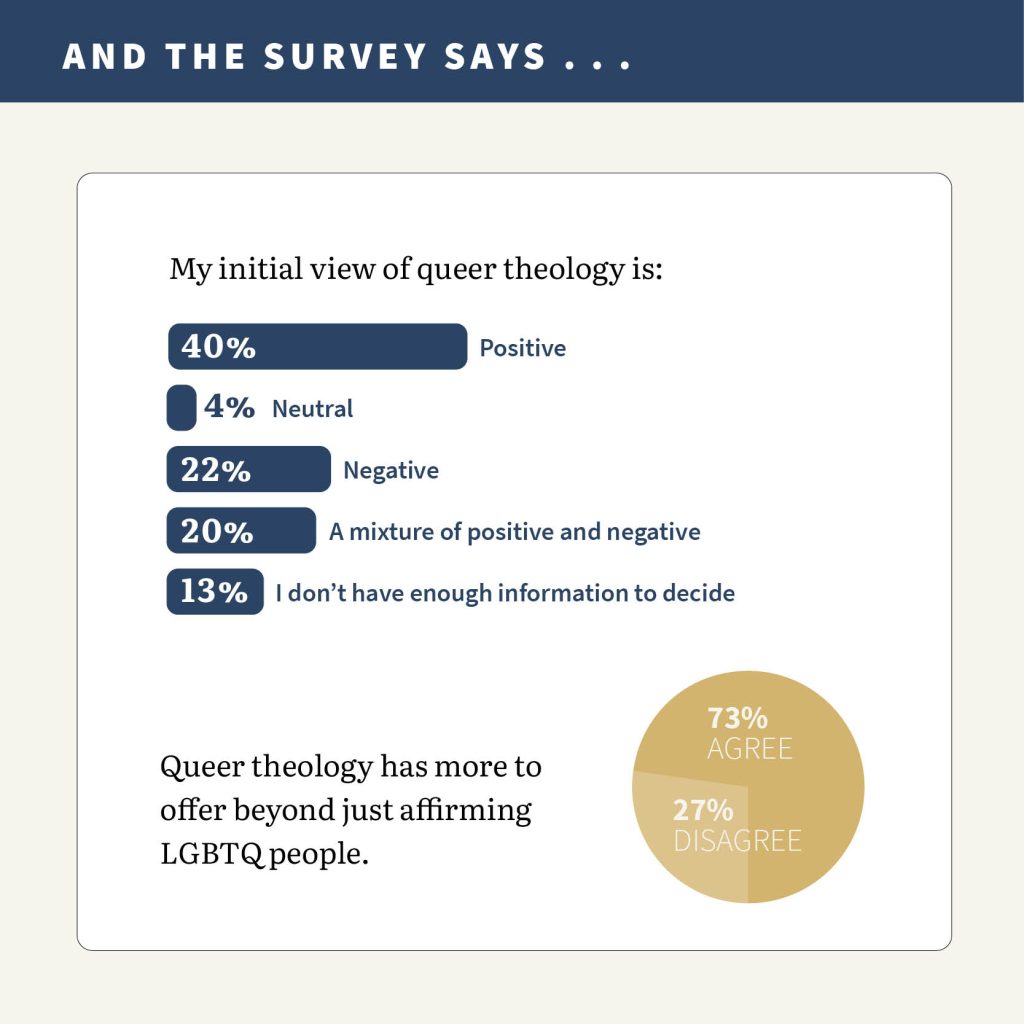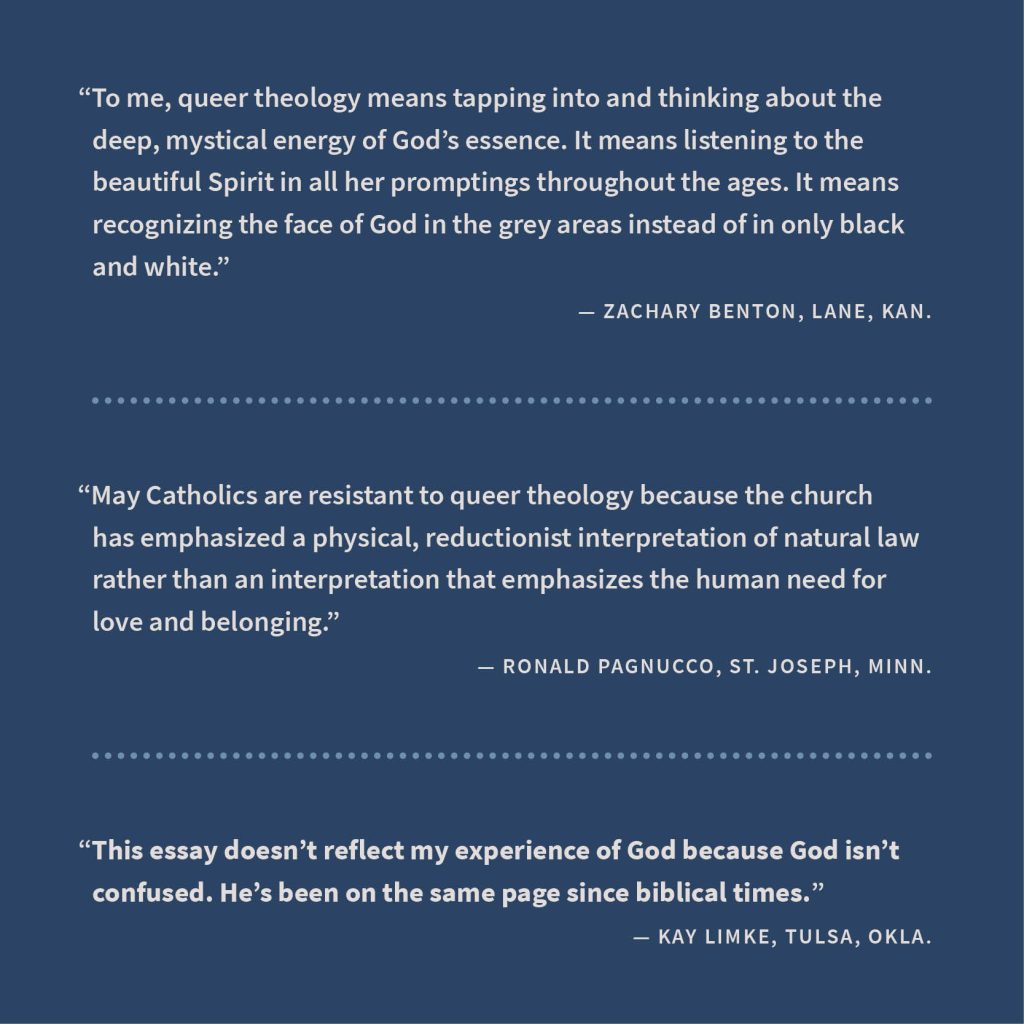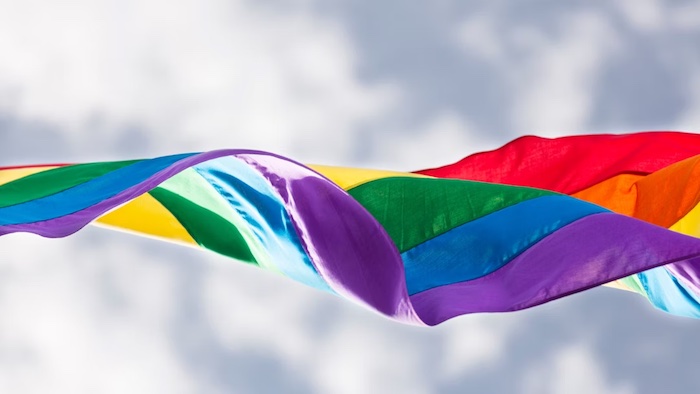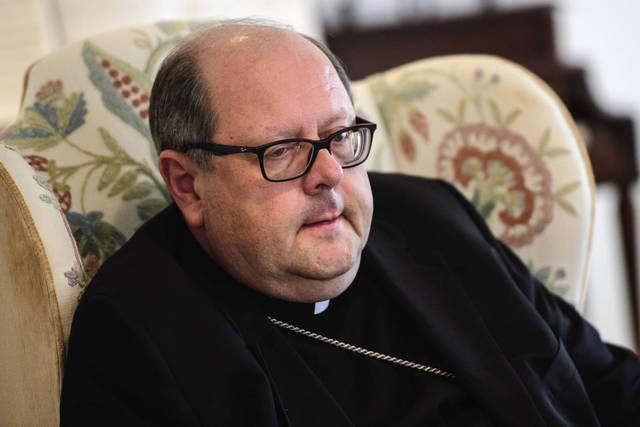— A new document that strives to reconsider matters of human dignity nevertheless echoes Church rhetoric from decades ago.
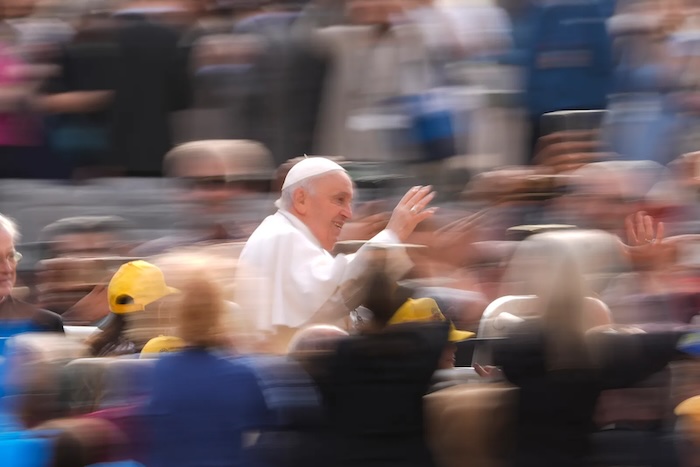
By Paul Elie
The arc of Vatican rhetoric on sexual issues is long, and it doesn’t bend much at all. On October 30, 1986, the Vatican’s Congregation for the Doctrine of the Faith released a letter to bishops, “On the Pastoral Care of Homosexual Persons,” which was signed by the office’s prefect, Cardinal Joseph Ratzinger. In 1975, the C.D.F., formerly known as the Holy Office, had made a distinction between the homosexual “condition” and homosexual acts, calling the latter “intrinsically disordered.” A result, the 1986 letter lamented, was that in the following years “an overly benign interpretation was given to the homosexual condition itself, some going so far as to call it neutral, or even good.” Then the C.D.F. got to the main point: “Although the particular inclination of the homosexual person is not a sin, it is a more or less strong tendency ordered toward an intrinsic moral evil; and thus the inclination itself must be seen as an objective disorder” and as “essentially self-indulgent.” The October 30th document came to be known as the Halloween Letter. At a grim moment in the aids pandemic, the Catholic Church, with an opportunity to show compassion to gay men, instead used terse, forbidding language to reaffirm its teaching against gay sexual activity and “the homosexual condition itself.”
Much has changed in the Church’s approach in the thirty-eight years since. The U.S. bishops eventually issued a statement framed as “a response to the H.I.V./aids crisis,” taking a kinder, gentler tone than that of the C.D.F. letter. Lesbians and gay men, including the Catholic writer Andrew Sullivan, initiated a movement for gay marriage, and it gained force, with gay marriage eventually becoming recognized by the U.S. government, and by nations worldwide. Pope Francis, four months after his election, in 2013, said, of gay clergymen, “Who am I to judge?” He spoke approvingly of civil protections for a gay couple in a 2019 interview with a Mexican broadcaster. He met with transgender women in St. Peter’s Square and received them again at a luncheon in the Vatican. In October, the Dicastery for the Doctrine of the Faith, or D.D.F.—an office that replaced the C.D.F., as part of a reorganization of the Roman curia—answered a Brazilian bishop’s query by affirming that transgender people can be baptized and can serve as godparents “under certain conditions.” In December, the D.D.F. issued “Fiducia Supplicans,” a document authorizing priests to bless people living in “irregular situations” and “couples of the same sex.” Catholic traditionalists decried the document; a group of bishops in Africa issued a joint statement saying that they would not allow such blessings in their dioceses. Yet, through all this, the Vatican did not alter its official characterization of homosexuality as an “objective disorder,” nor its declaration (found in “Catechism of the Catholic Church,” from 1992) that “everyone, man and woman, should acknowledge and accept his sexual identity”—the biological sex he or she is born with, that is.
When Francis was elected, the doctrinal office was run by Archbishop Gerhard Müller, a traditionalist who had been appointed by Pope Benedict XVI—the former Cardinal Ratzinger. Müller eventually set himself against the new Pope, suggesting, for example, that Francis’s apparent solicitude, in the 2016 apostolic exhortation “Amoris Laetitia,” toward Catholics who divorced and remarried was at odds with Church teaching. In 2017, Francis declined to renew Müller’s appointment, and promoted his deputy, Luis Francisco Ladaria Ferrer, a Spanish Jesuit. Finally, last July, after the D.D.F. was reorganized, Francis appointed his own close associate, Víctor Manuel Fernández, a fellow-Argentine who was then an archbishop, to lead it. In a public letter to the new prefect, Francis warned against a “desk-bound theology” infused with “a cold and harsh logic that seeks to dominate everything.” He urged the D.D.F. to be open to fresh “currents of thought in philosophy, theology, and pastoral practice” and stressed that the office must maintain Catholic doctrine, “but not as an enemy who critiques and condemns.” Francis made Fernández a cardinal in September. In October, the Vatican hosted a monthlong Synod on Synodality assembly, which brought some four hundred and fifty Church leaders from around the world to Rome, to take part in daily sessions meant to foster a “listening” and “discerning” Church. The synod process (which began in local churches worldwide in 2021) was promoted as a key initiative of Francis’s pontificate, and as a new way of proceeding for the Vatican.
This Monday, the D.D.F. released “Dignitas Infinita,” a document, five years in preparation, about “the dignity of the human person in Christian anthropology.” Its release was expected, and it was characterized by the press as unsurprising—“something of a repackaging of previously articulated Vatican positions, read now through the prism of human dignity,” as Nicole Winfield, an Associated Press correspondent based in Rome, put it. The document reiterates the Church’s stands against abortion and euthanasia, and amplifies its opposition to surrogate motherhood and what it calls “sex change” procedures. But, for the first time in a document of this stature, it groups those practices with broader phenomena that the Church opposes, such as war, economic inequality, human trafficking, “the marginalization of people with disabilities,” cruelty to migrants, violence against women, sexual abuse, and the death penalty, among others. According to Fernández, last November Pope Francis urged the office to make the document present issues connected to matters of human dignity, the personal and the social, as parts of a whole—a striking departure from the Church’s way of framing issues involving the body in terms of individual moral conduct. This approach has upset many for seeming to establish false equivalences. But the document has been praised in the Catholic press: the news site Crux saw it “uniting Pope Francis’s progressive social agenda with the traditional moral and ethical concerns of his predecessors.
The document is thick with citations of past statements by Francis, Benedict, and Pope John Paul II. Building on last December’s blessing of “couples of the same sex,” it affirms the Church’s opposition to discrimination on the basis of sexual orientation. But it complains that “the concept of human dignity is occasionally misused to justify an arbitrary proliferation of new rights.” It denounces “gender theory” for seeking to obscure, or do away with, the “foundational” quality of “sexual difference,” which belongs to the body created “in the image of God,” and it rejects any “sex-change intervention,” insisting that respect for one’s humanity must begin with respect for the body “as it was created.”
While “Dignitas Infinita” is the most important statement to be issued by the D.D.F. under the new prefect, it is best seen as a final expression of the old C.D.F.’s admonitory approach. For example, the fresh social emphasis Francis evidently sought to give it by grouping sex and gender with affronts to human dignity serves instead to point up the offhand, ad-hominem quality of its remarks on gender identity. Consider this passage: “Desiring a personal self-determination, as gender theory prescribes . . . amounts to a concession to the age-old temptation to make oneself God, entering into competition with the true love of God revealed to us in the Gospel.” In the nearly twelve-thousand-word text, that passage stands out both for its extreme rhetoric and its denunciation of individual behavior. It comes amid a dense, footnoted passage about the interaction of gender theory and human rights; suddenly the reader is presented with a citation-free sketch of an abstract individual, as imagined by a curial official. This individual is not credited with any effort of reflection or discernment—not seen as striving to join the physical and social aspects of personhood to the inward person (which some trans people identify as the God-given person), or as seeking to reconcile body and soul, as Christian believers have always sought to do. This individual is simply said to be succumbing to the temptation “to make oneself God.” Thus gender identity, whose complexities call for a complex response informed by emerging currents of thought, is fit into the Vatican’s textbook critique of post-Enlightenment social movements, and reduced to one more iteration of individual self-determination run amok—the way the Vatican characterized gay life a generation ago.
At a press conference about the new document, when Winfield from the A.P. asked Cardinal Fernández whether the Church might consider withdrawing the term “intrinsically disordered,” the prefect admitted that the phrase “needs to be explained a lot” and added, “Perhaps we could find a clearer expression.” Indeed, the arc that the Vatican’s approach to homosexuality has taken in the past four decades—from a “condition” to be dealt with to a way of being that can be blessed—might have prompted the D.D.F.’s theologians, as they give greater attention to gender-identity issues, to consider adopting some nuance and a stance of humility toward them.
Fortunately, there is an opportunity for the Vatican to really change its approach. At last October’s Synod gathering, participants discussed sex and gender intermittently, but their comments were largely kept out of the summary document, which emphasized procedural matters. This October, the participants will return to Rome for another month of collective listening and discernment. This time, gender identity should be firmly on the agenda. With that singular passage in the new document, the Vatican has put it there.
Complete Article ↪HERE↩!


